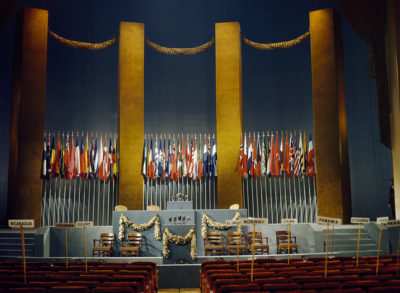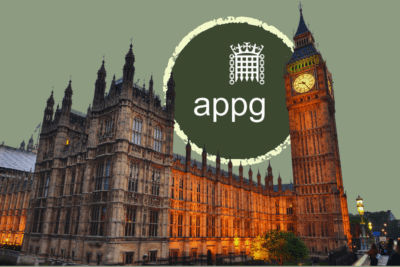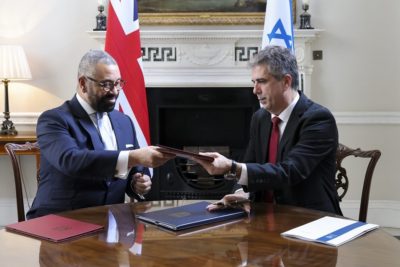Celebrate or commemorate? The Department for Education and VE Day
ForcesWatch Comment
The DfE’s recent communication to schools about the 70th anniversary of VE Day on 8 May suggests that schools ‘will want to celebrate and commemorate’ the event. This is the third set of learning materials promoted by the DfE within the past year around military issues. Do ‘celebrations’ around remembrance events inevitably drown out the more cautious messages about the price of victory?
8 May 2015 isn’t just the day after the general election. It’s also the 70th anniversary of VE Day (Victory in Europe Day) – the day in 1945 following the unconditional surrender of Germany to Britain, the USA, France and Russia, which marked the end of the 1939-45 war in Europe.
The Department for Education, on their page on the Times Education Supplement website, states that ‘the whole country will come together at 3pm on 8 May for a 2 minute silence to reflect on the sacrifices made, not just by those in the Armed Forces, but by civilians such as Land Girls and those in Reserved Occupations. Throughout the United Kingdom, there will be three days of celebrations ranging from a parade and a Service of Thanksgiving, to street parties around the UK and a star-studded concert in central London…Schools will also want to celebrate and commemorate the day’.
This assertion that ‘Schools will…want to celebrate’ VE Day, not just commemorate it, along with repeated references to ‘celebrating’, is troubling. As the editor of History Today suggests, comparing responses to the First and Second World Wars, while it may be more acceptable to celebrate the end of a terrible global conflict than the beginning of one, it should be done ‘with dignity and from a global perspective’.
The VE Day resources for schools that the DfE have chosen to promote are mostly those of the British Legion. Beyond the ‘Celebrating VE Day’ headlines, the British Legion resources do offer a somewhat more nuanced, balanced view of VE Day, and take a less celebratory tone. For example, the ‘20 things to know about VE Day’ sheet includes the point: ‘For many people, the end of the war was a sad day as they remembered all those that had been injured and killed…For Allied troops fighting in Southeast Asia and around the Pacific, the war was not over. Japan, the leading Axis nation in that area, did not surrender until August after the dropping of 2 atomic bombs on Japanese cities (Hiroshima and Nagasaki)’.
The British Legion’s VE Day primary school assembly pack states early on, under a ‘moment of reflection’ that, ‘Over the next few days we will learn about a terrible war but most importantly we will learn about the affects [sic] wars have on people and their lives. We will reflect on the horrors of war so that we may think about how we can work for a more peaceful world and remember those that are affected and killed when wars and battles do happen.’ This is followed by the poem ‘At A War Grave’ by the soldier John Jarmain, who was killed in Normandy aged 33, which concludes by referring to dead soldiers as ‘a worthless corpse of sense bereft, / Symbol of death, and sacrifice and waste.’
However, despite these reflections, the British Legion pack fails to note morally questionable aspects of Britain’s conduct during the war such as the bombing of German cities and towns by RAF Bomber Command, or the huge destruction, sacrifice and turmoil in other countries. This is history from a very British perspective. Ultimately, the union jack bunting and the exhortation to hold street parties in celebration dominate the commemorative elements.
This is the latest communication to schools from the DfE with materials that promote learning resources around military issues. During the last year, they have circulated resources about the NATO conference in Wales, produced by the Foreign Office, and a glossy promotional document produced by the Prime Minister’s Office and the Ministry of Defence called ‘The British Armed Forces: Learning Resource 2014’. (See the joint ForcesWatch-Quakers in Britain critique of this.)
By stating that VE Day activities fit into the ‘national curriculum’, the DfE could be seen as suggesting that a ‘celebration’ of some sort is almost compulsory. This stance is indicative of a wider cultural shift; the British Legion are organising a ‘VE Day 70 concert: A Party To Remember’, ‘featuring a spectacular line-up including some of the biggest recording artists, performers, stars and celebrities in live entertainment ‘. Such ‘star-studded’ events are becoming a necessary part of Britain’s commemoration of war. The ‘Festival of Remembrance’ is now an annual event in November.
Celebrations around military events inevitably drown out the more cautious messages. As historian Niall Ferguson commented on the 60th anniversary of VE Day, an occasion marked mainly by community events and very muted state commemorations, ‘We forget all too easily the extent to which our side also meted out death to innocent men, women and children in pursuit of victory. We forget the terrible moral compromises that were the price of winning the war’. David Gee, who writes on militarism, sums up the the reinvention of remembrance: ‘The poppy still means something to them [Second World War veterans] and because of that, it matters to me as well, but its deeper significance of lament, remembrance, and the commitment called ‘never again’, is being lost. I think it is being killed off.’
The change of approach over 10 years says much about the subsequent development of a set of government policies that seek to strengthen the influence of the military in civil society and to sustain the popularity of the armed forces amongst the public. In promoting ‘military ethos’ in schools, and learning resources that have a military theme, the DfE is very much part of the machinery delivering a glossy and uncomplicated image of what war involves. We question whether this conflicts with the DfE’s duty to ensure schools offer balanced learning materials, free from political interference.
See more: military in schools/colleges, military in society,
Like what you read?
> Sign up for our newsletter or blog notifications
> Support our work – from just £2 a month










